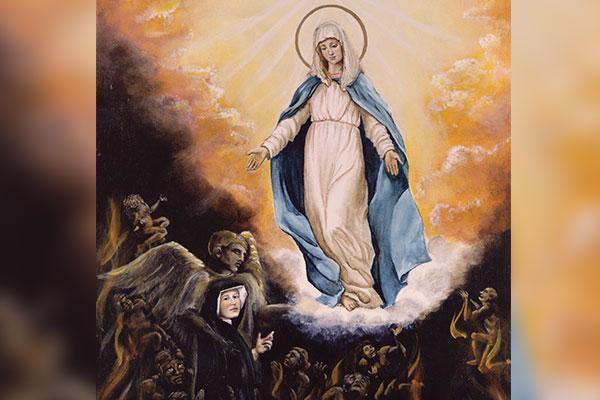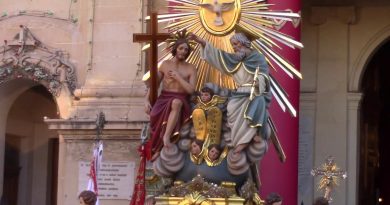Divine Mercy and Purgatory
Another eschatological subject which emerges from the writings of St Faustina Kowalska is, certainly, Purgatory.
Mother Church has spoken about the existence of Purgatory. In the Catechism of the Catholic we find a whole section dedicated entirely on Purgatory. Thus, in number 1030 of her Catechism, the Church speaks about the final purification, better known as purgatory. It says: All who die in God’s grace and friendship, but still imperfectly purified, are indeed assured of their eternal salvation; but after death they undergo purification, so as to achieve the holiness necessary to enter the joy of heaven.
Then, in number 1031, the Catechism explains the term Purgatory which is derived from the Church’s councils. It says: The Church gives the name Purgatory to this final purification of the elect, which is entirely different from the punishment of the damned. The Church formulated her doctrine of faith on Purgatory especially at the Councils of Florence and Trent.
Within the same number the Catechism also mentions biblical certain texts related to Purgatory: The tradition of the Church, by reference to certain texts of Scripture, speaks of a cleansing fire: As for certain lesser faults, we must believe that, before the Final Judgment, there is a purifying fire (Cf. 1 Cor 3:15; 1 Pet 1:7). While quoting St Gregory the Great and as well as referring to Mt 12:31 the Catechism goes on by saying: He who is truth says that whoever utters blasphemy against the Holy Spirit will be pardoned neither in this age nor in the age to come. From this sentence we understand that certain offenses can be forgiven in this age, but certain others in the age to come (no. 1031).
While upholding another biblical text, that taken from 2 Maccabees 12:46 the Catechism mentions the early custom of the Church in praying for the dead. The stance of the Church is supported from St John Chrysostom Homily on 1 Corinthians and a biblical reference to the Book of Job. It says: This teaching is also based on the practice of prayer for the dead, already mentioned in Sacred Scripture: “Therefore [Judas Maccabeus] made atonement for the dead, that they might be delivered from their sin.” From the beginning the Church has honored the memory of the dead and offered prayers in suffrage for them, above all the Eucharistic sacrifice, so that, thus purified, they may attain the beatific vision of God. The Church also commends almsgiving, indulgences, and works of penance undertaken on behalf of the dead: Let us help and commemorate them. If Job’s sons were purified by their father’s sacrifice, why would we doubt that our offerings for the dead bring them some consolation? Let us not hesitate to help those who have died and to offer our prayers for them (no.1032).
In her Diary, St Faustina speaks of Purgatory. She was taken in this place by her Guardian Angel. She recounts the even in no 20 of her Diary.
Jesus said that on the following night He would let me know for whom I should pray.
[The Next night] I saw my Guardian Angel, who ordered me to follow him. In a moment I was in a misty place full of fire in which there was a great crowd of suffering souls. They were praying fervently, but to no avail, for themselves; only we can come to their aid. The flames which were burning them did not touch me at all. My Guardian Angel did not leave me for an instant. I asked these souls what their greatest suffering was. They answered me in one voice that their greatest torment was longing for God. I saw Our Lady visiting the souls in Purgatory. The souls call her “The Star of the Sea.” She brings them refreshment. I wanted to talk with them some more, but my Guardian Angel beckoned me to leave. We went out of that prison of suffering.[I heard and interior voice] which said, My mercy does not want this, but justice demands it. Since that time, I am in closer communion with the suffering souls.
If the souls in Purgatory are suffering so much because they were longing for God how can I be in closer communion with these suffering souls? Can I help them by offering for the Eucharistic sacrifice so that they can be purified to enter God’s beatific vision? Can I further help them attain eternal glory by almsgiving, indulgence and works of penance undertaken on their behalf?
Fr Mario Attard OFM Cap





